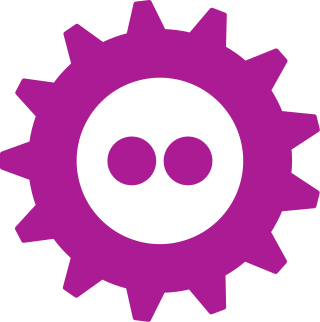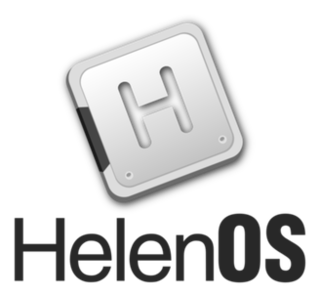
Free software, libre software, or libreware is computer software distributed under terms that allow users to run the software for any purpose as well as to study, change, and distribute it and any adapted versions. Free software is a matter of liberty, not price; all users are legally free to do what they want with their copies of a free software regardless of how much is paid to obtain the program. Computer programs are deemed "free" if they give end-users ultimate control over the software and, subsequently, over their devices.

GNU is an extensive collection of free software, which can be used as an operating system or can be used in parts with other operating systems. The use of the completed GNU tools led to the family of operating systems popularly known as Linux. Most of GNU is licensed under the GNU Project's own General Public License (GPL).
An integrated development environment (IDE) is a software application that provides comprehensive facilities for software development. An IDE normally consists of at least a source-code editor, build automation tools, and a debugger. Some IDEs, such as NetBeans, JDoodle and Eclipse, contain the necessary compiler, interpreter, or both; others, such as SharpDevelop and Lazarus, do not.
The GNU C Library, commonly known as glibc, is the GNU Project's implementation of the C standard library. It is a wrapper around the system calls of the Linux kernel for application use. Despite its name, it now also directly supports C++. It was started in the 1980s by the Free Software Foundation (FSF) for the GNU operating system.

Free and Open source Software Developers' European Meeting (FOSDEM) is a non-commercial, volunteer-organized European event centered on free and open-source software development. It is aimed at developers and anyone interested in the free and open-source software movement. It aims to enable developers to meet and to promote the awareness and use of free and open-source software.

Cyberduck is an open-source client for FTP and SFTP, WebDAV, and cloud storage, available for macOS and Windows licensed under the GPL. Cyberduck is written in Java and C# using the Cocoa user interface framework on macOS and Windows Forms on Windows. It supports FTP/TLS, using AUTH TLS as well as directory synchronization. The user interacts with the user interface (GUI), including file transfer by drag and drop and notifications via Growl. It is also able to open some files in external text editors.

HelenOS is an operating system based on a multiserver microkernel design. The source code of HelenOS is written in C and published under the BSD-3-Clause license.
GNUmed is a Free/Libre electronic medical record (EMR) for Unix-like systems, Microsoft Windows, macOS and other platforms. GNUmed aims to provide medical software that respects the privacy of patients and that is based on open standards.
HOSxP is a hospital information system, including Electronic health record (EHR), used in hospitals across Thailand. It serves over 300 hospitals in Thailand. The software aims to ease the healthcare workflow of health centers, for small sanatoriums to central hospitals.

Linux is a family of open-source Unix-like operating systems based on the Linux kernel, an operating system kernel first released on September 17, 1991, by Linus Torvalds. Linux is typically packaged as a Linux distribution (distro), which includes the kernel and supporting system software and libraries, many of which are provided by the GNU Project. Many Linux distributions use the word "Linux" in their name, but the Free Software Foundation uses and recommends the name "GNU/Linux" to emphasize the use and importance of GNU software in many distributions, causing some controversy.
ClearHealth is an open-source practice management (PM) and electronic medical records (EMR/EHR/PHR) system available under the GNU General Public License.

Linux-libre is a modified version of the Linux kernel that contains no binary blobs, obfuscated code, or code released under proprietary licenses. In the Linux kernel, they are mostly used for proprietary firmware images. While generally redistributable, binary blobs do not give the user the freedom to audit, modify, or, consequently, redistribute their modified versions. The GNU Project keeps Linux-libre in synchronization with the mainline Linux kernel.

GNU Health is a free/libre health and hospital information system with strong focus on public health and social medicine. Its functionality includes management of electronic health records and laboratory information management system.

RIOT is a small operating system for networked, memory-constrained systems with a focus on low-power wireless Internet of things (IoT) devices. It is open-source software, released under the GNU Lesser General Public License (LGPL).

Luis Falcón Martín is a Spanish computer scientist, physician and free software activist who founded GNU Solidario, an organization focused in education and health. Martín is known for in social medicine and as the author of GNU Health, a health and hospital information management system.








